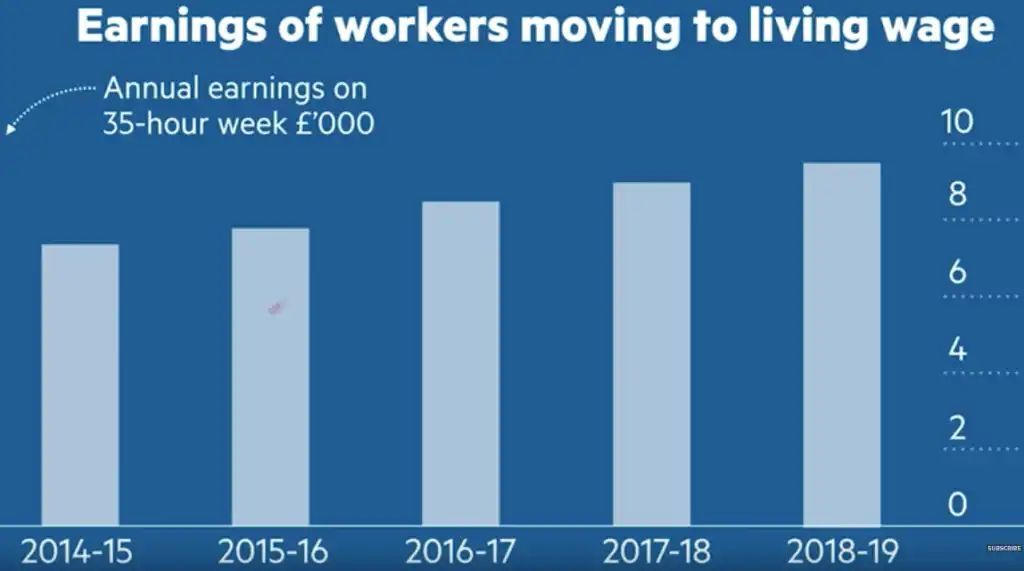The Differences Between The Minimum And Living Wage
The Differences Between The Minimum And Living Wage
There is a difference between the National Minimum Wage (NMW) and the National Living Wage (NLW). The NLW applies to workers aged 21 and over, while the NMW applies to younger workers and apprentices. The NLW is a higher rate than the NMW, and is legally required for those 21 and over.


The National Minimum Wage
The National Minimum Wage (NMW) is the legally required minimum hourly rate that most employers in the UK must pay their workers. It was developed to protect low-paid workers and create fair wages. The specific National Minimum Wage rate varies based on the worker’s age and whether they are an apprentice.
The National Minimum Wage increased on the 1st April 2025. The National Minimum Wage for 18-20 year olds is £10.00 per hour. For apprentices and those under 18, the rate is £7.55 per hour.
If an employer is found not to be paying the correct minimum wage to employees, HMRC will be able to take them to court. Alternatively, the employee can raise a grievance against their employer.
The National Living Wage
The National Living Wage applies to workers aged 21 and over. As of the 1st April, it is £12.21 per hour.
The primary difference from the NLW is that this is applied to people who are aged 21 and over. The NLW is also regulated by law, and companies can be taken to court if they are found not to be paying this.
There is something also known as the ‘living wage’. When looking at the ‘living wage’, it is important to note that there is a difference between the NLW and the Living Wage.
The NLW is set by the government and is an hourly rate that is amended each year. The Living Wage is set by the Living Wage Foundation and is calculated based on living costs in the UK.
- The National Living Wage is the law — employers have to pay it.
- The Real Living Wage is optional, but considered fairer because it reflects the true cost of living.
Exceptions To The Rates
It is important to note that there are some people who are not legally entitled to the NMW or the NLW. These people will include the self-employed and company directors.
Members of the armed forces and work experience students will also not be legally entitled to this. All other workers in the UK must receive either the NMW or the NLW based on their age.
The Age Ranges
The NLW does not have any age ranges which change the amount that is paid to employees. The NMW does have these ranges with school leavers up to 17 years of age being paid the least.
The next age range will be 18 to 20 followed by 21 to 24. When the age of 25 is reached, the employee will have to be paid the NLW and not the NMW. For workplace disputes, contact DPH legal solicitors for employment law advice.
Disclaimer: The contents of this article are for information purposes only and should not be relied upon as formal legal advice. We cannot accept responsibility for any loss as a result of acts or omissions taken in respect of this article. Specific legal advice should be sort tailored to the individual circumstances in all cases.
For any information relating to our services please give us a call and we will be very happy to help.
What Can We Help With?
- Settlement and compromise agreements
- Unfair dismissal advice
- Employment tribunal advice
- Discrimination claims
- Redundancy advice
- Breach of contract
- Advice on maternity and paternity leave
- Book A Free Consultation
- Understand Your Situation
- Know Where You Stand
Our 3 Step Process
Book A Free Consultation
This complimentary consultation allows our employment solicitors to understand more about your specific situation so we can provide you with the best advice possible.
We’ll lay out your options and will advise you upfront of any costs involved.
Our 3 Step Process
Understand Your Situation
Understanding your unique situation will help us to understand how we can help you move forward with more clarity.
Although everyone’s situation is unique, we’ve most likely dealt with similar scenarios before.
Our 3 Step Process
Know Where You Stand
Whether that’s pursuing unfair dismissal, negotiating a larger settlement agreement, starting a claim for discrimination or simply having peace of mind.
We’ll help you feel clearer and more settled.

0 / 127
5 star reviews

0 / 50
5 star reviews
Yell.com

0 / 231
5 star reviews
ReviewSolicitors
Client Feedback
We have formed many long-lasting relationships by listening to feedback and understanding our clients’ needs. Our employment law advice provides exceptional care and tailored support.
“DPH Legal has provided expert advice on all aspects of employment law. When advising us on any matters there was always a choice of action that could be taken and clear instruction on risks and options open to the company.”
Tracey Rees
“Outstanding I fully recommend DPH Legal to anyone who needs legal representation or advice for even the most contentious and upsetting disputes. David Harris and the whole team are second to none, and they give fact-based advice to get the best outcomes for the client.”
SilverPot63
“From beginning to end they were a pleasure to deal with. They were extremely efficient and the lawyers at DPH Legal were without doubt experts in their field. They conduct themselves with impeccable professionalism and remain in constant communication throughout.”
Behrooz Vahedifar
Award Winning Service
Our award-winning legal services are recognised for excellence, professionalism, and client success. We provide tailored strategies with a focus on precision, integrity, and results.
Contact a Lawyer Today
Davidson House,
Forbury Square,
Reading, Berkshire,
RG1 3EU
0118 914 5622
info@dphlegal.com









